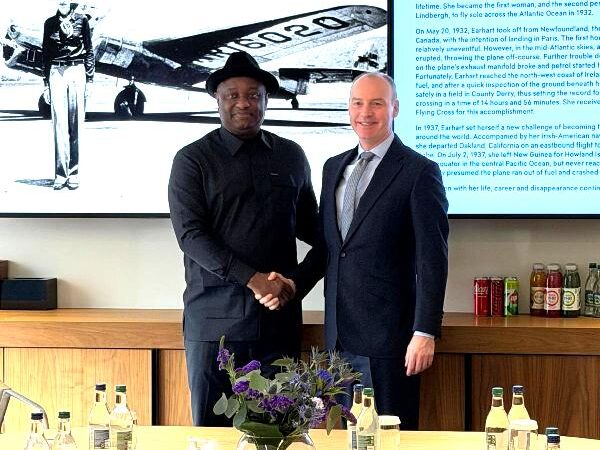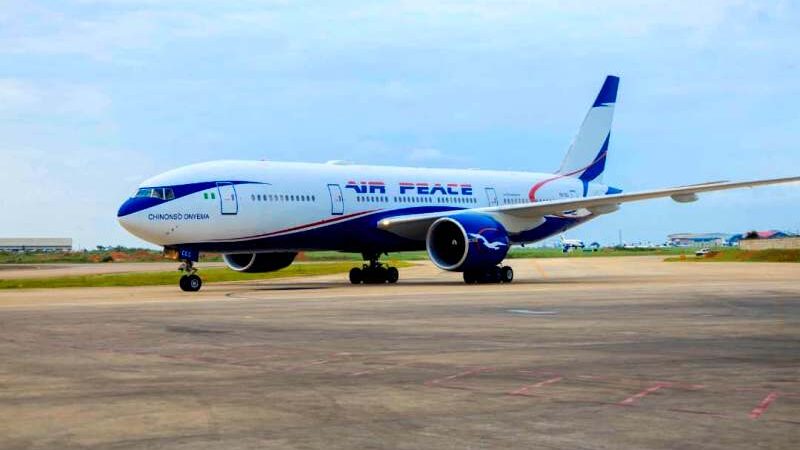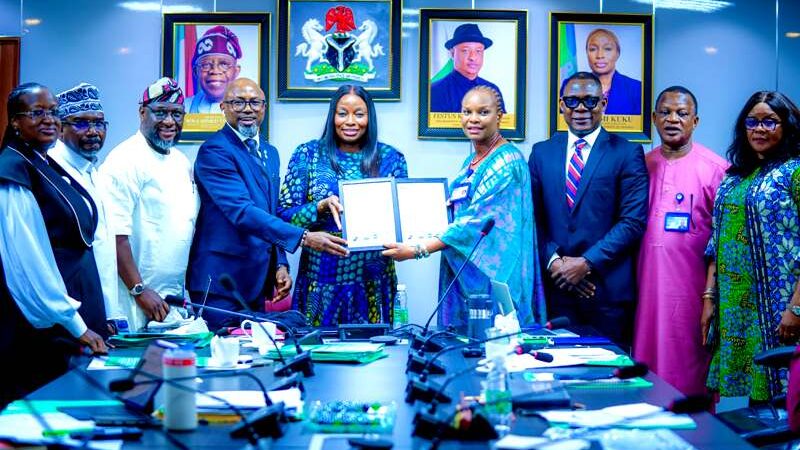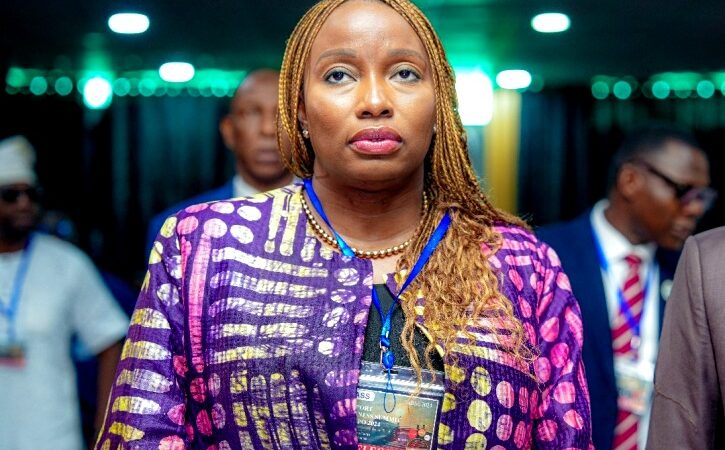How We Are Fixing Airports Infrastructure, Viability, By FAAN MD
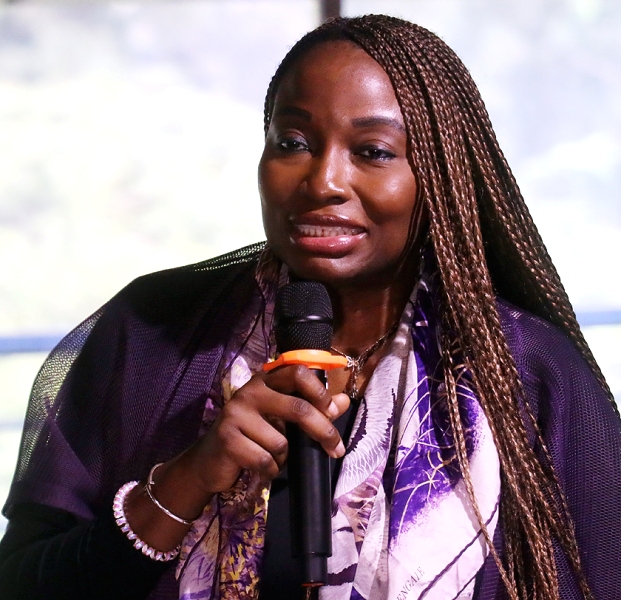
The Managing Director and Chief Executive of Federal Airports Authority of Nigeria (FAAN) Mrs. Olubunmi Kuku says the authority has started fixing airport projects in Nigeria after much talk about the decay.
Speaking in a TVC programme titled Beyond 100 Days, Kuku said: “I think we have spent too much time talking about the decay, and it’s time to start fixing and that’s exactly what we are doing.”
She said “the first thing is to block some immediate gaps, and we did that with minor rehabilitation works at a lot of our airports. I am sure that if you’ve been a traveling passenger over the last 90 days, you will see that the airports are cleaner. They are friendlier. In terms of the atmosphere, we have lit up some of those airports a lot more and it’s more spacious in certain areas. That is just the minimal that we can do in terms of interventions. At least, to make sure that while we focus on the large infrastructure projects and of course, rehabilitating some of the facilities, you’re able to do that if you fly through the domestic airport in Abuja, you would notice that there’s a lot that has been done. If you came into that airport about six months to a year ago, it was dark. It was almost like the Hall of doom. We have lit up that airport tremendously. We have opened up the space, the seating arrangements, in terms of the facility, and of course, what we hear everyone complain about, which is the conveniences. There is access, or better access for people with disability, making sure that some of the elevators and the escalators are functional, making sure that things like the toilets are also functional, and really focusing on a lot of expansion works across that airport. All right, same thing goes if you go into the north. If you go into the south or the southeast, you will see similar projects and similar progress that is being made.”
She noted the challenge of continuity. “What is even more critical is the continuity that is required, meaning that wherever we stop doing the work or the good work, with the Honourable Minister, and of course, the agencies within the Ministry, somebody needs to pick that up, which is the biggest challenge that we see; that once we have a new administration, sometimes, we tend not to continue or complete existing projects,” she said.
As for several airports in the country that are not viable, Kuku said “you have already made the investment in infrastructure. So, what you need to do is really to plug that investment so that you can improve your rate of returns. I do not recommend shutting down those airports at all and if you have had conversations with me over the last few months, what I will say to you is that there are two things. One is the economics of the airports, which is viability, but secondly, there is also the social impact that the airport brings into driving the economy or at least, helping us to turn around the economy, in terms of the interventions that we are putting through. The four critical areas that we’re focusing on, in terms of how we flood those airports and improve the state of the airport; one is to increase economic activity around the airports. Our commercial and business development team as well as myself, obviously, with the guidance of the Honorable Minister, have worked very closely with some of the state governments in terms of what they can do. One is largely around cargo. I think cargo is a sweet spot for us in the market. The states like Kano, Jos, Ogun state, even though Ogun is not our airport, they are looking to drive cargo effectively as well. It is not just about building the infrastructure or investing more in the infrastructure on ground. It’s really making sure that there is a feeder system that starts all the way from the bottom of the value chain to drive cargo, the various segments of cargo. I think agro and farmer are two critical areas that we have been looking at. Agro is specifically around making sure that there’s food security. So, distribution of food items in market, specifically within Nigeria, and of course, certain items that can be exported. What that means is that in terms of the bottom of the chain, the value systems, making sure that the states are working very closely with this, in terms of aggregating the products of the produce that need to go out, making sure that you’re sort of aggregating a database that also focuses on packaging, logistics, also testing labs around some of those airports, so we can at least, start to drive a lot more cargo activity. So, as I mentioned, that is one area. Then, economic activity, tourism. I know there has been a lot of noise about Detty December in Lagos. So, tourism is one of course, business activity, and largely around driving GDP. Look, I think if we want to drive economic activity at this airport, it is really to make sure that we’re able to drive the GDP growth, which are key. So that’s one. The second is really around improving the infrastructure linkage to the airport facilities, making sure there is collaboration between ourselves and the state government and, of course, at the federal level as well, making sure that the road network that leads into the airport, making sure that the transit facilities there are available. I will give some examples. FCT, for example, has a rail line that terminates at the airport. It makes it easier for people to come there, whether they’re traveling passengers or to conduct economic activity at the airport. We recently had a meeting with Lagos state government this week. They do have a road that is coming in from Alimosho to also open up the area. So, the linkage is very important in terms of making sure that we can actually drive this activity. Alright? The third is really around transit hubs.”
She said FAAN is looking to establish certain locations and transit hubs in Lagos and Abuja and “to prioritize the cargo exports.”
On airports concession, Kuku said “we are all on the same page that private sector participation is required. A hybrid model is what we have clearly preached for, and that’s making sure that for the commercial activities, we are able to commercialize those you just spoke about the concessions. The Honorable Minister has been working very closely with us at FAAN to make sure that the concession process is thorough. There has been a review. So of course, there has been a review of the last concession process as well. There were some addresses that we put in the paper, which were more of notices a couple of weeks ago, a couple of months ago, largely around interest or intent in those airports that we are looking to concession. There’s some advisory work that is also ongoing in terms of project development and the economics. Now, when it comes to concessions, it is one thing to potentially find a private sector partner to work with you on those concessions, but what is more important is to make sure that you sort of have the same goals. You are able to potentially trash out some of the issues that have potentially arose and will continue to arise around it. Look, what do you do with the people? The Honourable Minister has clearly said there will be no jobs loss. Of course, that also requires conversation in terms of the economics and the financials of what happened. So currently, we are in project development stage.”
Kuku does not buy the idea of establishing an Aviation Finance Bank as proposed at a recent Aviation Round Table forum. She is “not of the opinion that we set up another institution for financing. I think that we have a lot of institutions that exist today who are finance houses. So, for example, you have some of the commercial banks, even though we know that financing from commercial banks tend to be at double digit rates. We also have some private equity institutions that we can look at. What I do think we need is really more specialized banking, or specialized financing that we can leverage. We also need to consider things that would help us improve the financing environment. So, some sort of financial instruments, credit guarantees, for example, or backstops for the industry. So, my focus would rather be on specialized financing and potential credit guarantees to support that.”

